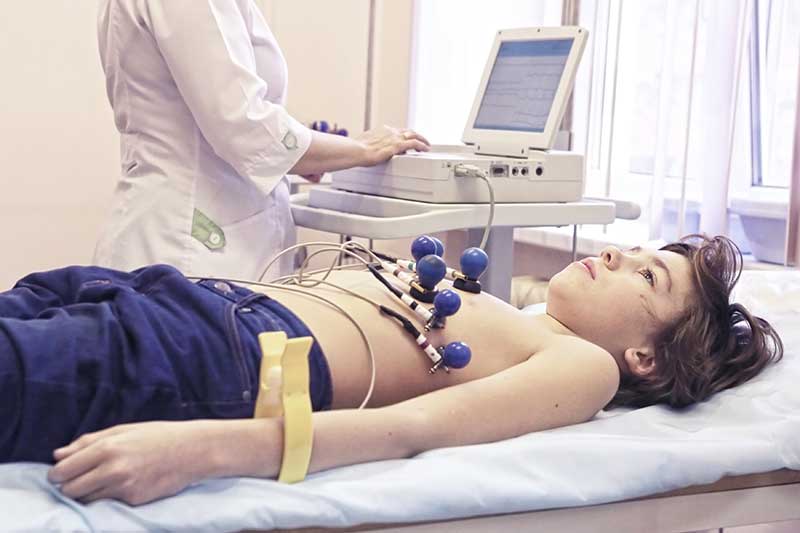Introduction: Embracing Change in Nursing Education
Nursing education is pivotal as technological advancements and evolving healthcare needs reshape the landscape. For educators and nursing students, understanding these changes is crucial. This blog post delves into the future of nursing education, offering insights, practical tips, and examples that illustrate the transformative journey ahead. By the end of this article, readers will have a comprehensive view of emerging trends and strategies to stay ahead in the ever-evolving nursing field.
The Rise of Online Learning Platforms
Accessibility and Flexibility
Online learning platforms have revolutionized nursing education by offering increased accessibility and flexibility. Students can now access coursework and resources from anywhere, at any time, allowing them to balance their studies with personal and professional commitments. This shift towards online learning caters to diverse learning styles and paves the way for a more inclusive educational experience.
Interactive Learning Tools
Modern online platforms incorporate interactive tools such as quizzes, simulations, and discussion forums. These tools enhance engagement and promote active learning, ensuring students grasp complex concepts effectively. Interactive learning also fosters student collaboration, creating a sense of community despite the physical distance.
Continuous Professional Development
For educators, online platforms provide opportunities for continuous professional development. Courses on the latest teaching methodologies and healthcare advancements enable educators to stay current and offer the best possible education to their students. This ongoing learning is essential in a field as dynamic as nursing.
Simulation-Based Learning: Bridging Theory and Practice
Realistic Clinical Scenarios
Simulation-based learning has become a cornerstone of modern nursing education. By creating realistic clinical scenarios, simulations allow students to practice and hone their skills in a safe environment. This hands-on approach bridges the gap between theory and practice, preparing students for real-world challenges.
Enhancing Critical Thinking
Simulations are designed to test students’ critical thinking and decision-making abilities. These exercises require students to assess situations, prioritize tasks, and make quick decisions, mirroring the pressures they will face in clinical settings. This experience is invaluable in building confidence and competence.
Technology Integration
Integrating advanced technologies, such as virtual reality (VR) and augmented reality (AR), has elevated simulation-based learning. VR and AR create immersive environments that mimic real-life clinical settings, providing unparalleled realism. These technologies enhance the learning experience and ensure students are well-prepared for their roles as healthcare providers.
Interdisciplinary Collaboration: A Holistic Approach
Team-Based Learning
Interdisciplinary collaboration is becoming increasingly important in nursing education. Team-based learning involves students from various healthcare disciplines working together on case studies and projects. This approach promotes a holistic understanding of patient care and encourages teamwork.
Communication Skills
Effective communication is crucial in healthcare. Interdisciplinary collaboration helps students develop and refine their communication skills by interacting with peers from different fields. These interactions foster mutual respect and understanding, essential for effective patient care.
Shared Knowledge
Collaborating with other disciplines broadens students’ knowledge base. Exposure to different perspectives and expertise enhances their ability to provide comprehensive care. This shared knowledge is vital in addressing the complex needs of patients in a holistic manner.
The Role of Artificial Intelligence in Nursing Education
Personalized Learning Paths
Artificial Intelligence (AI) revolutionizes nursing education by offering personalized learning paths. AI algorithms analyze students’ performance and learning styles, tailoring content to meet their needs. This customized approach maximizes learning efficiency and effectiveness.
Predictive Analytics
AI-powered predictive analytics can identify students who may be struggling and provide targeted support. By analyzing data trends, educators can intervene early, offering additional resources and guidance to ensure student success. This proactive approach enhances overall educational outcomes.
Virtual Patient Simulations
AI is also being used to create virtual patient simulations. These simulations allow students to interact with AI-driven patients, who respond in real time based on students’ actions. This dynamic interaction helps students develop critical clinical skills and decision-making abilities.
Emphasizing Soft Skills in Nursing Education
Compassion and Empathy
While technical skills are crucial, soft skills like compassion and empathy are equally important in nursing. Education programs increasingly focus on these aspects, emphasizing the importance of patient-centered care. Developing these skills ensures that nurses can provide holistic and compassionate care.
Communication and Teamwork
Effective communication and teamwork are essential in healthcare settings. Nursing education programs incorporate training modules focusing on these skills, preparing students for collaborative work environments. Strong communication and teamwork lead to better patient outcomes and a positive work atmosphere.
Leadership and Management
As the role of nurses expands, leadership and management skills are becoming more important. Education programs are integrating these skills into their curricula, preparing students for leadership roles within healthcare organizations. Strong leaders are essential for driving positive change and improving healthcare delivery.
The Impact of Genomics and Personalized Medicine
Understanding Genetic Influences
Genomics and personalized medicine are reshaping healthcare, and nursing education must keep pace. Understanding genetic influences on health and disease is critical to nursing curricula. This knowledge enables nurses to provide more tailored and effective care.
Integrating Genomic Data
Education programs are teaching students how to integrate genomic data into patient care. This includes interpreting genetic tests, understanding risk factors, and developing personalized care plans. Nurses can contribute to more precise and effective treatments by incorporating genomics into nursing practice.
Ethical Considerations
With the rise of genomics comes the need for ethical considerations. Nursing education programs address the moral implications of genetic testing and personalized medicine. This ensures that future nurses can navigate complex ethical issues with sensitivity and professionalism.
Global Perspectives in Nursing Education
Cultural Competence
As healthcare becomes increasingly globalized, cultural competence is essential. Nursing education programs are incorporating cultural competence training to prepare students for diverse patient populations. This training fosters respect and understanding, leading to better patient care.
International Collaboration
Global perspectives in nursing education also involve international collaboration. Exchange programs and partnerships with institutions worldwide offer students opportunities to learn from different healthcare systems and practices. This global exposure enriches their education and broadens their horizons.
Addressing Global Health Challenges
Nursing education also focuses on global health challenges like pandemics and healthcare disparities. By understanding these issues, students can contribute to global health initiatives and work towards solutions that benefit populations worldwide.
The Importance of Lifelong Learning
Continuing Education
In a rapidly evolving field, lifelong learning is crucial. Nursing education programs emphasize the importance of continuing education to keep up with advancements in healthcare. This commitment to ongoing learning ensures that nurses remain knowledgeable and competent throughout their careers.
Professional Development
Professional development opportunities like workshops, conferences, and certifications are integral to lifelong learning. These opportunities allow nurses to expand their skills, stay current with industry trends, and advance their careers. Encouraging professional development fosters a culture of continuous improvement.
Mentorship and Networking
Mentorship and networking are valuable components of lifelong learning. Experienced nurses can guide and support newer practitioners, while networking opportunities allow for exchanging ideas and best practices. These connections contribute to personal and professional growth.
The Future of Practical Training
Clinical Placements
Practical training remains a cornerstone of nursing education. Clinical placements provide students with hands-on experience in real healthcare settings. These placements are essential for developing practical skills and exposure to various clinical scenarios.
Preceptorship Programs
Preceptorship programs pair students with experienced nurses who provide mentorship and guidance during clinical placements. This one-on-one support enhances the learning experience and helps students build confidence in their abilities. Preceptorship programs are vital for bridging the gap between theory and practice.
Simulation Labs
In addition to clinical placements, simulation labs offer valuable practical training. These labs provide controlled environments where students can practice procedures and develop skills. Simulation labs complement clinical placements by providing additional opportunities for hands-on learning.
The Role of Technology in Nursing Education
E-Learning Platforms
E-learning platforms are transforming nursing education by providing flexible and accessible learning options. These platforms offer various courses, resources, and interactive tools that enhance the learning experience. E-learning platforms cater to diverse learning styles and needs.
Mobile Learning
Mobile learning is another technological advancement in nursing education. Mobile apps allow students to access educational content on their smartphones and tablets, making learning more convenient. Mobile learning supports on-the-go education and fosters continuous learning.
Digital Libraries
Digital libraries provide students with many resources, including textbooks, journals, and research papers. These libraries are essential for conducting research and staying current with advancements in healthcare. Digital libraries support evidence-based practice and lifelong learning.
Preparing for the Unknown: Adaptability in Nursing Education
Embracing Change
Nursing education must prepare students for an ever-changing healthcare landscape. Emphasizing adaptability and resilience helps students navigate uncertainties and challenges. Embracing change is crucial for success in the dynamic field of nursing.
Developing Problem-Solving Skills
Problem-solving skills are essential for adapting to new situations. Nursing education programs incorporate training modules focusing on critical thinking and problem-solving. These skills enable students to address complex issues and find innovative solutions.
Fostering Innovation
Innovation is key to advancing healthcare. Nursing education programs are encouraging students to think creatively and explore new ideas. Fostering innovation ensures that future nurses can contribute to the ongoing evolution of healthcare practices.
Conclusion: Shaping the Future of Nursing
The future of nursing education is bright, with exciting advancements and opportunities on the horizon. As educators and nursing students navigate this transformative journey, embracing change and staying informed are essential. By leveraging technology, enhancing practical training, and fostering a culture of lifelong learning, we can shape the future of nursing and ensure that our healthcare providers are well-equipped to meet the needs of an evolving world.
For those seeking to delve deeper into these topics and explore further resources, the journey of learning and growth continues. Together, we can pioneer a future where nursing education thrives and healthcare delivery is elevated.








